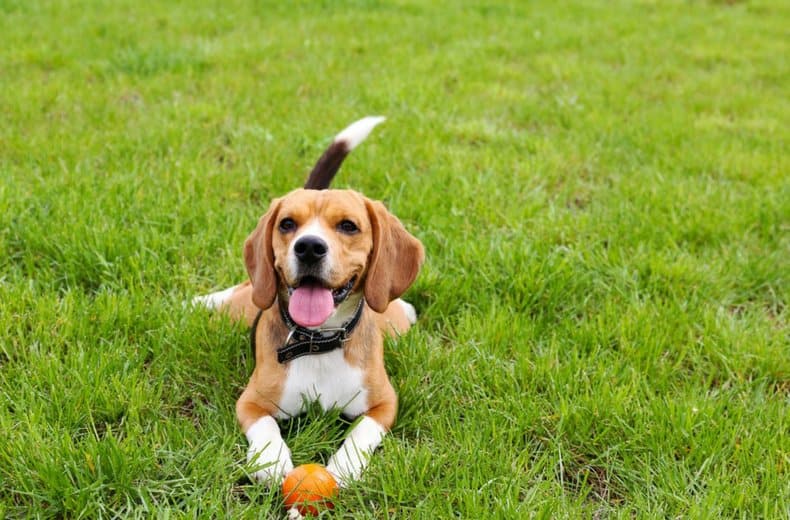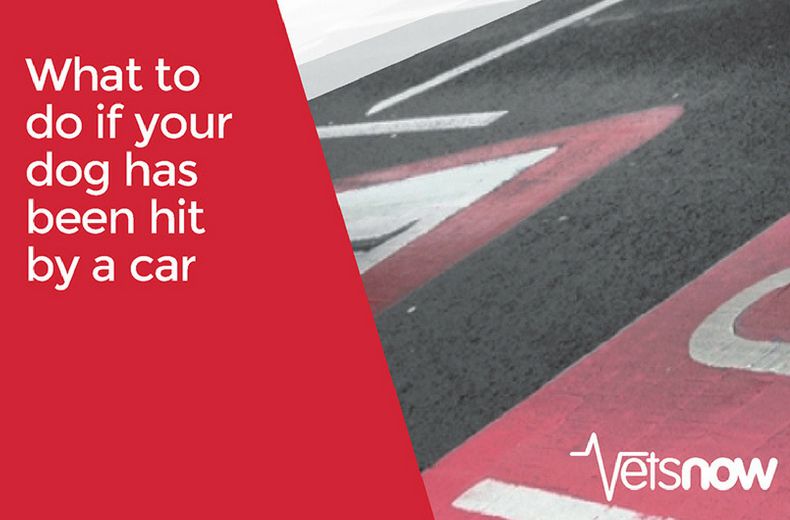My dog has been hit by a car, what should I do?
Emergencies tend to happen when you’re least expecting them.
Knowing what to do and what not to do can make a difference to saving your pet’s life.
Here are some simple guidelines on what to do if your dog has been hit by a car:
- Don't panic
- Make sure the accident scene is safe
- Call a vet and provide them detailed information about the incident
- Wait with your injured dog until a vet can arrive at the scene
- Keep the injured dog warm by wrapping them in a blanket, keeping their nose and mouth exposed
- Cover any wounds with a clean cloth and apply gentle pressure to stop any bleeding
- Avoid giving the dog any food or drink immeditely after the accident

Breakdown cover from £5.29 a month for Standard cover*
• Cheaper than AA Price Promise or we’ll beat it by 20%^
• We get to most breakdowns in 60 mins or less
• Our patrols fix 4/5 breakdowns on the spot

Stay calm
Although easier said than done, try not to panic.
Make sure the accident scene is safe before proceeding to prevent further injury to you or your pet.
Call a vet
Phone your regular vet or, if it’s out of hours, your nearest Vets Now pet emergency clinic or 24/7 hospital.
Try to phone ahead to ensure the vets and vet nurses are prepared for your arrival.
Your vet may ask questions such as how the dog was hit, what area of the body appears to be injured and how he is responding.
The vet may give you some advice on how to deal with any injuries and how to prepare your dog to take them to the veterinary clinic.
5 Star Defaqto rated cover
RAC Comprehensive Car Insurance Plus has been given a 5 Star Rating by Defaqto. Get a quote online today.


Handle injured dogs with care
The dog is likely to be scared and in pain.
He may scratch or bite so handle him with care.
Dogs in pain or shock can bite especially when frightened so an emergency muzzle can be made with some bandage or tape to loop over the dog’s nose before transporting or handling.
But only ever use a muzzle if the animal is not having breathing difficulties.
Make sure the dog is comfortable
Keep the injured dog warm by wrapping them in a blanket, keeping their nose and mouth exposed.
If your dog is having trouble breathing, maintain an open airway by removing the collar, open the mouth and check for any obstructions.
The dog is likely to be scared and in pain.
He may scratch or bite so handle him with care.
Dogs in pain or shock can bite especially when frightened so an emergency muzzle can be made with some bandage or tape to loop over the dog’s nose before transporting or handling.
But only ever use a muzzle if the animal is not having breathing difficulties.
How to deal with dog injuries

The most common injuries following road traffic accidents are cuts, scrapes, and broken bones.
But our emergency vets also see head trauma (concussion) and internal injuries including internal bleeding.
You should cover any wounds with a clean cloth and apply gentle pressure to stop any bleeding.
If you think there may be broken bones, keep the dog as still as possible and place them on a hard move-able surface such as a piece of wooden board covered with a blanket or the parcel shelf from your car.
Never give the dog any medication or food or drink.
What will happen at the vets?
Depending on the extent of the injuries, the dog may need to be admitted for tests, monitoring, and treatment.
The vet may need to perform blood tests, x-rays or ultrasound scans to rule out serious internal injuries.
Your dog may also need intravenous fluids (a drip) to counteract shock and will probably be given pain relief and antibiotics.
Running over a dog and the law in the UK
In the UK, dog owners are held responsible if their pet is run over by a car.
The law specifically states that any person who allows a dog to run onto a road off the lead is guilty of an offence.
The owner is also responsible for any veterinary costs and, potentially, for the cost of a repair if a vehicle is involved.
I've hit a dog with my car. Do I need to report it?
Dogs, as well as goats, horses, cattle, ass, mules, sheep and pigs, fall within the remit of the Road Traffic Act.
Therefore, motorists are required by law to report accidents involving dogs to the police.
Vets Now are the UK’s leading pet emergency service with 57 clinics and 3 hospitals across the country, partnering with over 1,000 local vet practices to provide people and pets the care and support they deserve when they need it most.
Did you know, you can get fined for moving out of the way of an ambulance?
Want more useful content like this sent straight to your inbox?





